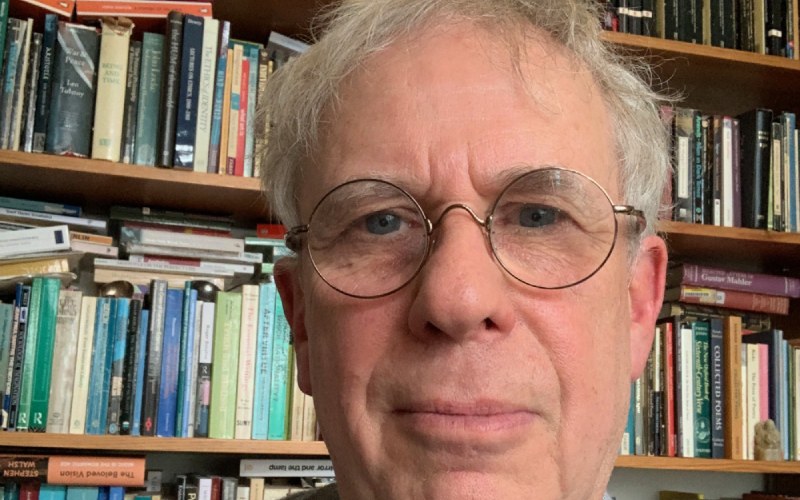“I feel as a psychoanalyst one has to respond to the world. We can’t just simply remain in our consulting rooms although that has always been vitally important for my identity and thinking. We can’t turn a blind eye to what is going on in the world. There are a lot of awful things going on – a lot of genocides, a lot of similar kinds of processes that were seen in the Holocaust, that were seen in slavery, and they are continuing. We need to stand up, we need to say what’s going on, we need to tell people ‘Look, these are the elements.’ In America they came close to disaster with what happened with the capitol riots. We came close with populous movements here, but luckily our democratic structures have been fairly resilient. We have been able to stand up, with all this skepticism one may have, to some of these destructive forces. But other places are not so able to. It was a sense of I can’t simply keep quiet.”

Dr. Roger Kennedy
London
Episode Description:
We begin with Roger’s definition of evil, which references the destruction of the subjectivity of the ‘other’. We consider the mutual influences of individual psychology and group forces that permit and encourage the degradation and annihilation of the scapegoated. The two examples that he addresses in his book are the Holocaust and British-American Slavery, acknowledging the similarities and differences between them. Roger considers the capacity to provide a “home for otherness” as a vital alternative to evil. We discuss the town of Le Chambon-sur-Lignon in France as an example of those who collectively provided such a home for Jews in World War II. We conclude with his sharing his personal and family story with the Holocaust, which informs his life’s work as well as the origin of his last name.
Our Guest:
Dr. Roger Kennedy is a consultant child and adolescent psychiatrist and an adult psychoanalyst. He was an NHS consultant in charge of the Family Unit at the Cassel Hospital for nearly thirty years before going into private practice twelve years ago. He was chair of the Child and Family Practice in Bloomsbury and is still a director there.
His work includes being a training analyst and seeing adults for analysis and therapy, as well as children, families, and parents at his clinic. He is a past president of the British Psychoanalytical Society and is a frequent expert witness in the family courts. He has written fourteen books published on psychoanalysis, interdisciplinary studies, and child, family, and court work, as well as many papers. His previous IPA podcast on music is at https://ipaoffthecouch.org/2020/11/22/episode-72-the-musicality-of-psychoanalysis-and-the-psychoanalysis-of-music-with-roger-kennedy-md/
Film: Getting Away with Murder(s)
https://www.imdb.com/title/tt5078614/
Recommended Readings:
Bohleber, W. (2010). Destructiveness, Intersubjectivity, and Trauma. London: Routledge.
Browning, C. (1992). Ordinary Men. New York: Harper.
Chasseguet-Smirgel, J. (1990). Reflections of a Psychoanalyst Upon the Nazi Biocracy and Genocide. International Review of Psycho-Analysis, 17: 22 167–176.
Hyatt-Williams, A. (1998). Cruelty, Violence, and Murder. Northvale, NJ: Jason Aronson.
Kennedy, R. (2022), The Evil Imagination, Understanding and Resisting Destructive Forces. London: Phoenix Books.
Mitscherlich, A., & Mitscherlich, M. (1967). The Inability to Mourn. B. Placzek (Trans.). New York: Grove, 1975.
Patterson, O. (1982). Slavery and Social Death. Cambridge, MA: Harvard University Press.
Thomas, L. M. (1993). Vessels of Evil. Philadelphia, PA: Temple University Press.
